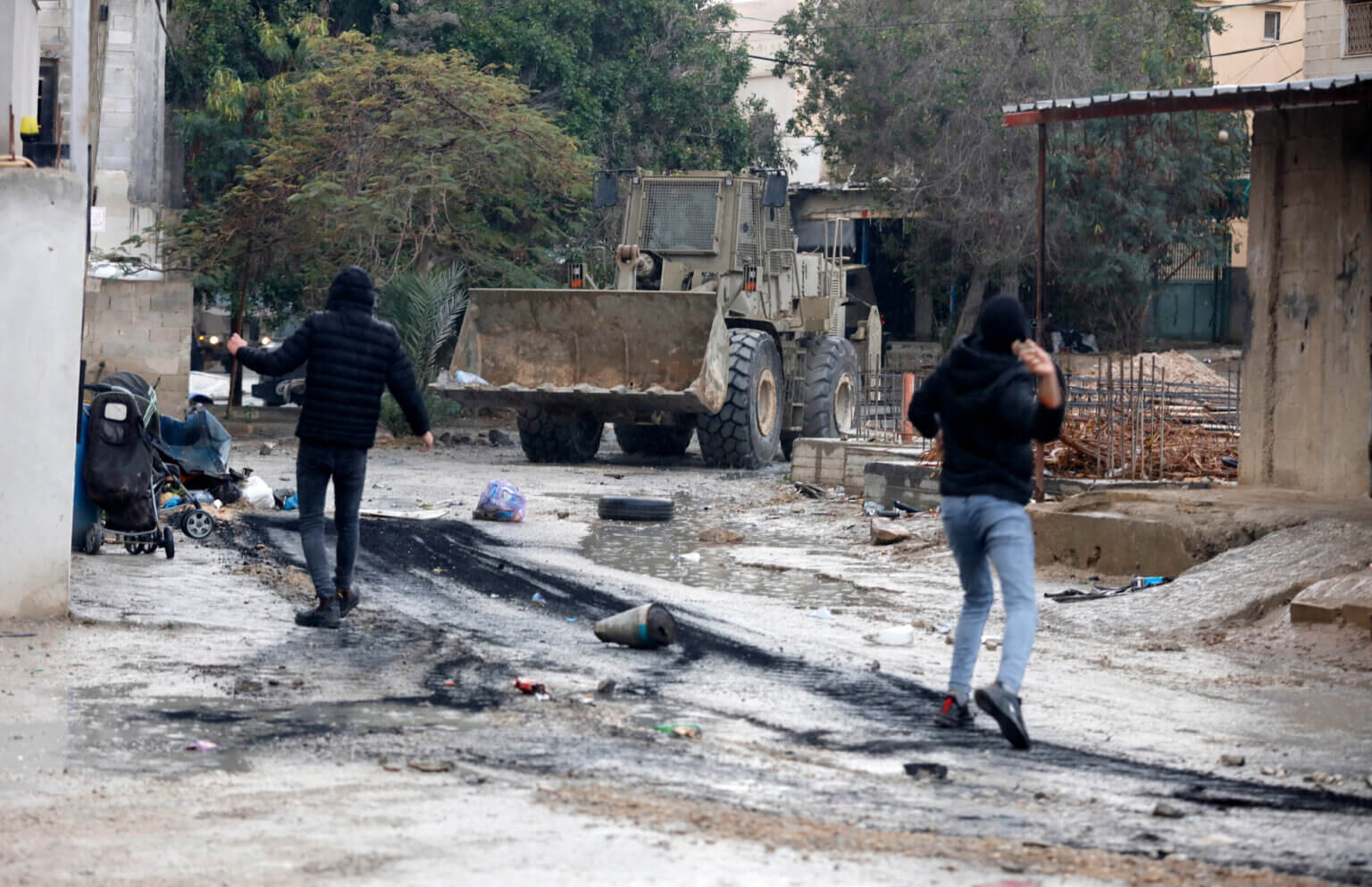Key developments (January 31- February 6)
- 26-year-old Abdullah Sameeh Qalawleh, a resident of Jenin, was shot and killed by Israeli forces near the town of Huwwara, south of Nablus on February 4
- At least five Palestinians were killed during an Israeli army raid on Jericho and the Aqbat Jaber refugee camp early morning on Monday, February 6. The bodies of the five Palestinians were seized by Israeli forces, identified by the Palestinian health ministry as Rafat Wael Oweidat, 21, Ibrahim Wael Oweidat, 27, Adham Majdi Oweidat, 22, Thaer Oweidat, 28, and Malik Awni Lafi, 22.
- Some Israeli and Palestinian media outlets reported that the death toll from Monday morning’s raid was higher than five, though no official sources could confirm.
- Israeli forces besieged the Jericho area for 10 days, closing off all entrances and exits to the governorate, in search for the Palestinians who shot at a restaurant near an illegal Israeli settlement on Saturday, January 28th.
- Dozens of Palestinians were injured and arrested over the course of the army’s siege on Jericho, which hindered the travel of hundreds of thousands of Palestinians over the course of 10 days.
In-Depth
Last week formed a continuity with the week that came before it, marking the spread of the wave of resistance operations against Israeli targets as well as the subsequent waves of repression, arrests, and assassinations of the fighters responsible for them.
On January 28, resistance fighters had reportedly attempted to shoot at an Israeli restaurant near the settlement of Almog, before withdrawing unharmed. The ensuing Israeli manhunt lasted for ten days and shut down the Jericho governorate, imposing a siege on the city of Jericho and its surrounding areas, especially the Aqbat Jabr Refugee Camp.
Aqbat Jabr became a battleground. The Israeli military launched two incursions into the camp in search of the resistance fighters responsible for the Almog operation. On the first invasion on Saturday, February 4, the army was unable to root out the fighters, withdrawing after a failed protracted search. The second raid this morning, February 6, was far more deadly, resulting in the death of 5, including two of the resistance fighters directly suspected of carrying out the operation.
What is most notable about this latest round of resistance and repression is that it has centered around Jericho, extending from Jenin and Nablus southward and reaching the Aqbat Jabr refugee camp. A local resistance group has taken form in the camp, calling itself the “Aqbat Jabr Brigade.” The group’s Telegram account put out a statement hailing the 5 martyred Palestinians as veterans of “resistance and Jihad,” while claiming to have succeeded in shooting down an Israeli drone and causing significant injuries in army ranks.
The other notable development is that the armed group appears to be affiliated with Hamas, which has remained noticeably aloof amid the wave of armed resistance since the start of 2022 and through the last Israeli war on Gaza, which specifically targeted the Islamic Jihad movement and its leadership in the Strip.
While this may not necessarily portend a change in Hamas’s stance, what it does mean is that the resistance continues to gain popular support, including among Hamas’s social base, all of which creates pressures for it to move beyond lip service and to step up efforts in fomenting armed groups in the West Bank.
The Palestinian Authority (PA) has not made this task any easier, as recent months have seen a notable crackdown on political opponents, particularly Hamas members. The role played by the PA continues to be one of security coordination despite recent claims to have ended it following the Jenin massacre two weeks ago. Yet it also becomes clear now that the crackdown on political opposition is also a crackdown on any leadership that could potentially be part of a resistance reality in the West Bank — in essence, the outsourcing of Israel’s counterinsurgency strategy.
Important figures
- 42 Palestinians have been killed in the first month of 2023 – more than the first three months of 2022 combined.
- Eight Palestinian children have been killed in 2023
- The highest concentration of Palestinians killed this year are from the Jenin governorate
- 173 Palestinians were killed in the West Bank and East Jerusalem in 2022, as part of Operation Break the Wave.
Shortlink for this post: https://daysofpalestine.ps/?p=35196





